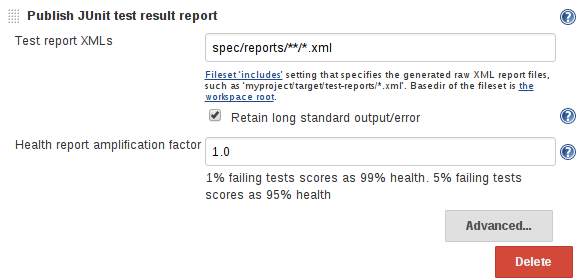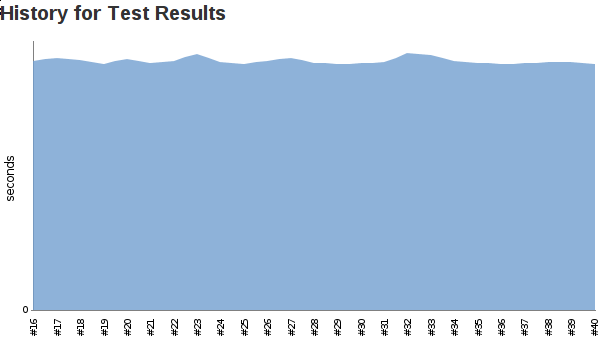
Jenkins integrates well with the Ruby toolchain for common tasks that many Ruby developers are already running locally. Tasks such as executing RSpec or Cucumber, generating documentation, running code analysis tools and deploying Ruby software can all be done through Jenkins.
Integrating test results
Many tools, like Cucumber, can natively output JUnit-formatted XML which integrates by default into Jenkins via the "Publish JUnit test result report" Post-build Action. For tools which do not generate the appropriately formatted XML by default, there are gems which add the necessary formatters, such as ci_reporter.

By integrating the test reports into Jenkins, you can generate trends and reports. There are other plugins, such as the Email Ext plugin which can also make use of these machine-readable test reports to send email notifications with only the failing test cases listed.

Using plugins such as the Cucumber Test Result plugin improve the integration and discoverability of successful/unsuccessful Cucumber scenarios.
By integrating these tools into Jenkins, team members no longer need to attempt to parse thousands of lines of console output, but instead can more easily find the important information about a build.
Other presentations
-
Jenkins ♥ Ruby (
.pdf) an introduction to integrating Jenkins with Ruby projects by R. Tyler Croy
Recent posts
-

Deprecating non-Java plugins
-
Declarative Pipeline: Publishing HTML Reports
-
Continuous Security for Rails apps with Pipeline and Brakeman
-
Publishing HTML Reports in Pipeline
-
JRuby Branch merged!
-
Ruby Plugins Hack Session Notes 6/23/2011
-
Ruby Plugins Hack Session 5/27/2011
-
Ruby Plugins Hack Session 5/12/2011
Jenkins ♥ Ruby Articles
-
Continuous Delivery for Heroku With Jenkins
thediscoblog.com -
Integrating Rubocop into Jenkins
atomic-penguin.github.io -
Cooking with Jenkins, Test Kitchen and Docker
www.cryptocracy.com
Ruby plugins for Jenkins
-
JUnit plugin
publishes XML formatted test reports (generated by tools like ci_reporter, cucumber) for trending and analysis
-
Brakeman plugin
incorporates the output from the Brakeman security scanner for Rails projects
-
Rake plugin
adds Rake invocation as a build step
-
RubyMetrics plugin
reports for Jenkins. Rcov, Rails stats, Rails notes and Flog.
-
RubyMotion plugin
build RubyMotion projects from within Jenkins
-
Cucumber Test Result plugin
integrate and report from Cucumber executions